STOP PRESS: £10 TICKETS ON SALE NOW FOR SELECTED SESSIONS.
For programme details, click here
Click to book Single Session Tickets
Following two successful editions, The Weekend of Mistakes (WoM) will be back at the Castle from 20th to the 22nd March 2026 with its signature deep dive into financial and economic history—and the lessons the mistakes of the past hold for us today. The event will feature leading investment and economic thinkers, including Russell Napier, Merryn Somerset Webb, Professor Helen Thompson, and many more. Prepare for a weekend of insight, discovery, storytelling, and spirited debate.
We’d love to keep you in the loop. Drop us a line at enquiries@weekendofmistakes.org, or sign up for the Newsletter (top right).
Video by ShootingReels.com

The Weekend of Mistakes 2026
In a world brimming with shocks, surprises and uncertainty, this year’s programme asks how earlier generations navigated similarly unstable times— and what we learned (or didn’t) from them. After all, every mistake was once somebody’s brilliant idea — a reminder that even failure has its moment of conviction.
Across the Castle, intimate, close-up conversations offer a chance to listen and to chat. This year’s sessions include:
- The mafia’s unlikely role in shaping 1960s queer nightlife
- The economics of football - and why Hollywood is investing in the UK’s lower leagues
- Forgiveness, faith traditions and the morality of debt
- Gen Z’s pension prospects as young taxpayers
- Why your water bill is so high - and how to fix it
- ‘Trumponomics’ and the new age of state capitalism
- Who decides the future of entertainment
- What happens when financial stress becomes a mental health crisis?
At the heart of the weekend is Default: the history, art and ethics of not paying back what you owe — a timely exploration of the world’s growing mountains of debt, and the moral accounting of the ‘promise economy’ from personal crises to global fault lines.
Our speakers



Merryn Somerset-Webb
Merryn Somerset Webb was founding editor of Moneyweek magazine in 2000. She remained at the magazine as Editor in Chief until late 2022. Merryn was also a Contributing Editor to and weekly columnist for the Financial Times until September 2022. She is currently Editor at Large. Bloomberg Wealth writing about wealth, investing and personal finance and hosts the 'Merryn Talks Money' podcast. Merryn is also an experienced non executive director and currently sits on the board of two listed investment trusts.



Professor Helen Thompson
Helen Thompson is Professor of Political Economy in the Department of Politics and International Studies at Cambridge University. Her most recent book Disorder: Hard Times in the 21stCentury was published by Oxford University Press on 24 February 2022 and was shortlisted for the 2022 Financial Times Business Book of the Year. She has written for, among other outlets, the Financial Times, the New York Times, the Sunday Times, the Guardian, Foreign Affairs, Project Syndicate, the London Review of Books, New Statesman, UnHerd, Nature, and Prospect.



Russell Napier
Russell Napier is author of The Solid Ground investment report for institutional investors and co-founder of the investment research portal ERIC- a business he now co-owns with D.C. Thomson. Russell has worked in the investment business for 35 years and has been advising global institutional investors on asset allocation since 1995. Russell is author of the book Anatomy of The Bear: Lessons From Wall Street’s Four Great Bottoms ( in print for almost twenty years and ‘a cult classic’ according to the FT) and is founder and course director of The Practical History of Financial Markets course. The course has run since 2004 and is now available on campus at Edinburgh Business School, in a two and a half day in-person executive version in London and also online.
He is a member of the investment advisory committees of three fund management companies, Cerno Capital, Kennox Asset Management and Bay Capital. He is part owner of both Cerno and Kennox.
In 2014 Russell founded the charitable venture The Library of Mistakes a business and financial history library in Edinburgh that now has branches in India and Switzerland. Plans to open libraries in London, Singapore, Toronto and Mumbai are progressing. The Library of Mistakes hosts lectures which are live streamed and recorded and a podcast series was launched in 2022. The Library and the course are owned and operated by a Scottish registered charity called Didasko which donates its financial surpluses to promote financial education.
Russell has degrees in law from Queen’s University Belfast and Magdalene College Cambridge. He is a Fellow of The CFA Society of the UK , an Honorary Fellow of the CISI and is an Honorary Professor at The University of Stirling and a Visiting Professor at Heriot Watt University. His second book – The Asian Financial Crisis 1995-1998: Birth of the Age of Debt- was published in July 2021.



Alice Sherwood
Alice Sherwood is the Co-Director of the Weekend of Mistakes. She is the author of the award-winning Authenticity: Reclaiming Reality in a Counterfeit Culture (HarperCollins 2022), which argues that although our counterfeit culture is shaped by the most powerful forces of economics, evolution, and technology, we can still come together to reclaim reality. Currently a Visiting Senior Research Fellow at The Policy Institute at King’s College London, she has been a director of an open-source intelligence company, worked as a management consultant for Accenture, in retail strategy consultancy and private equity, and for the BBC in education and multimedia. She has under-graduate degrees in philosophy and in chemistry, an MBA from INSEAD, and an MA in literary criticism and narrative non-fiction. She is a trustee of the Hay Castle Trust, chair of the Beit Scientific Fellowship at Imperial Colleget, chair of the Rising Tide women’s network, and lives in London and Wales. Authenticity is Alice’s first book. It won a Royal Society of Literature Giles St Aubyn Award for Non-Fiction.
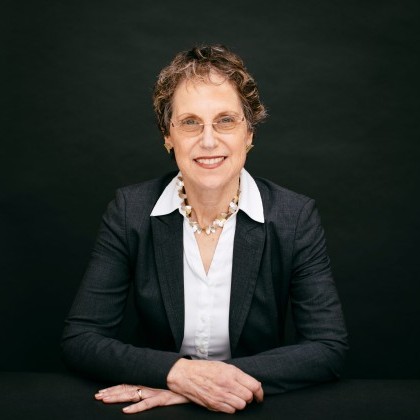


Anat Admati
Anat R. Admati is the George G.C. Parker Professor of Finance and Economics at Stanford University Graduate School of Business, where she is also a Faculty Director of the Corporations and Society Initiative. She also a senior fellow at Stanford Institute for Economic Policy Research and (by courtesy) of the Freeman Spogli Institute for International Studies (FSI), where she directs the Program on Capitalism and Democracy at the Center for Democracy, Development and the Rule of Law.
Admati has written extensively on information dissemination in financial markets, portfolio management, financial contracting, corporate governance and banking. Her current research, teaching and advocacy focus on the complex interactions between business, law, and policy with focus on governance and accountability.
Since 2010, Admati has been active in the policy debate on financial regulations. She is the co-author, with Martin Hellwig, of the highly acclaimed book The Bankers’ New Clothes: What’s Wrong with Banking and What to Do about It (Princeton University Press, 2013), whose expanded edition was published in 2024. In 2014, she was named by Time Magazine as one of the 100 most influential people in the world and by Foreign Policy Magazine as among 100 global thinkers.
Admati holds BSc from the Hebrew University, MA, MPhil and PhD from Yale University, and an honorary doctorate from University of Zurich. She is a fellow of the Econometric Society, the recipient of multiple fellowships, research grants, and paper recognition, and is a past board member of the American Finance Association. She has served on several editorial boards and was a member of the FDIC’s Systemic Resolution Advisory Committee and the CFTC’s Market Risk Advisory Committee.
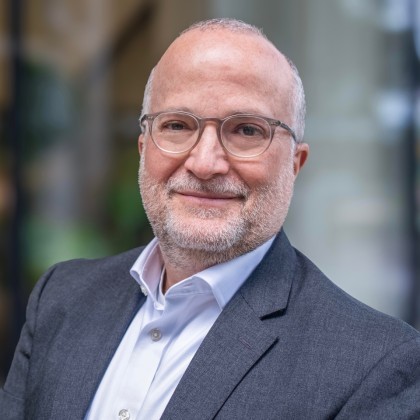


Charles Hecker
Charles Hecker is the author of the 2024 book Zero Sum: The Arc of International Business in Russia, published in the UK by Hurst Publishers and in the US by Oxford University Press.
Prior to writing Zero Sum, Charles was a partner at Control Risks, the international, specialist risk consultancy. For eight years, Charles was the managing partner of the firm’s Moscow office. He was later a co-head of Control Risks’ geopolitical risk consulting practice.
Prior to working at Control Risks, Charles was a journalist in Russia for The Moscow Times and in Florida for The Miami Herald. Charles has a BA in Russian and Soviet Studies from the University of Pennsylvania and an MA from the Russian Research Center (now the Davis Center) at Harvard University.
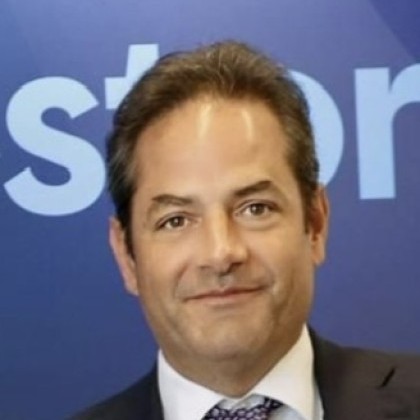


Charlie Methven
Charlie Methven is a sports industry executive and consultant, currently acting as a director of football clubs in Belgium, Jamaica and England.After graduating from Oxford University in 1998, he embarked upon a successful career in journalism, becoming a columnist at the Daily Telegraph in his late 20s. After switching to become a communications consultant, he went on to specialise in the Sports industry, advising - amongst others - the Jockey Club, McLaren F1, the state of Qatar, Tottenham Hotspur and Arsenal PLC.In 2018, with two colleagues Methven became co-owner and executive director of Sunderland AFC, then in English football's 3rd tier. Following a successful turnaround, he sold his stake in 2022, before going onto lead a similar takeover of Charlton Athletic FC, which he left after the club was promoted to the Championship in May 2025. He is currently a director of Mount Pleasant in Jamaica, RAEC Mons in Belgium and Walton&Hersham FC in London, as well as co-hosting industry podcast The Business of Sport.
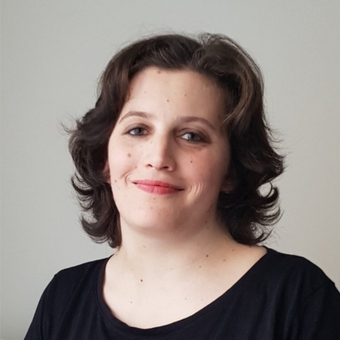


Charlotte Henry
Charlotte Henry is a journalist covering tech, media and politics. Her byline has appeared in publications including City AM, the Independent on Sunday, The Times Red Box, the Telegraph, the TLS. The author runs her own media outlet, The Addition, which gives insight into the crossover of media, technology and culture. The author is based in London, UK
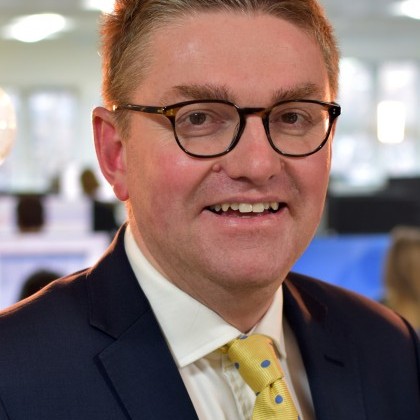


David Black
David is a regulatory expert and economist. He works at the interface of regulation, finance and infrastructure. He was Chief Executive of Ofwat, the economic regulator of the water sector in England and Wales 2021-25. Prior to this he held a number of senior roles at Ofwat including Executive Director leading the 2019 price review and Economics Director. Before Ofwat, David worked in economic regulation and competition in the telecommunications, energy and water sectors as a consultant and in Government in the UK and New Zealand."
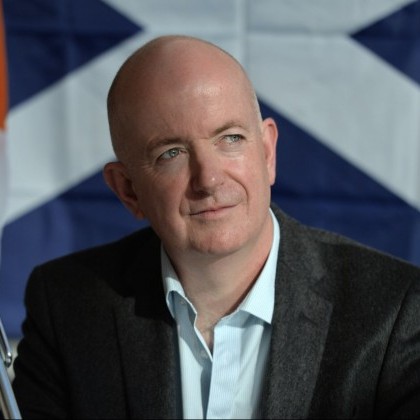


David Clarke
David Clarke CFA is CEO of Didasko Education Company, the charity behind the Library of Mistakes, Practical History of Financial Markets courses, Future Asset and Leavers’ Money Skills.
After studying philosophy at Trinity College Dublin, he joined the Bloomberg News team in 2000, reporting on Europe’s burgeoning investment management industry. Later posts saw him as editor-at-large for EMEA news sales and editor for bonds and foreign exchange.
After completing his CFA exams he focused on communications for the investment industry, working for a number of well-known investment and wealth management houses. He has also run marketing teams in the wider financial information sector.
A keen supporter of the finance industry and the good that it can do, he has been involved for many years in encouraging the development of Scotland’s investment sector and its international links, particularly with Ireland, and was until recently chairman of the CFA society in Scotland.
He joined Didasko Education in 2022 as its first CEO, overseeing its expanded portfolio of activities in events and media., increased commercial operations and also its plans to develop more libraries around the world.
He is an accomplished musician, and worked in entertainment in his early 20s. He is also a strong supporter of international cooperation and is chairman of the European Movement in Scotland and a board member of European Movement UK.
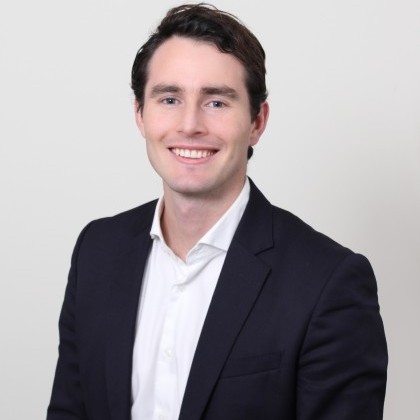


Dorian van Raalte
Dorian van Raalte is an investment professional with global private markets experience across structured debt and equity, specialising in climate and natural capital strategies. He is an Associate Director in the Forestry and Natural Capital Division at Gresham House, where he plays a key role in developing and implementing investment strategies, alongside originating, executing and managing international investments. Dorian is co-leading Gresham House’s Sustainable International Forestry Fund, an SFDR Article 9 strategy, which reached first close in late 2025 with over €250 million of commitments.
Prior to joining Gresham House, Dorian spent five years at Sail Ventures, a boutique investment firm based in the Netherlands. As part of the founding team of the global climate strategy, the &Green Fund, he helped scale the fund to over US$400 million, structuring ESG-integrated investments in sustainable agriculture and forestry. During this period, Sail Ventures was twice named Environmental Finance’s Asset Manager of the Year.
Dorian advises the University of Oxford’s Environmental Change Institute and the LSE Earth Capital Nexus, where his work focuses on financing and scaling nature positive investments. He has also contributed to research for the Bank of England on nature and climate risks. Dorian holds degrees from the University of Cape Town and Imperial College London and is a CFA Charterholder.
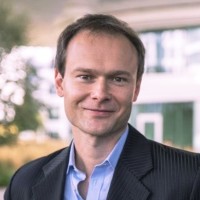


Dr. Janusz Marecki
Dr. Janusz Marecki is an AI Partner at Ahren Innovation Capital ($1B of capital committed) and an AGI director at Agile Loop. Prior to that, he was a lead scientist at Google DeepMind, a senior scientist at IBM Watson, a principal at Pasteur Labs, a researcher at the European Laboratory for Nuclear Research (CERN), a research associate at the Ukrainian Academy of Sciences, an advisor to the US NSF and a full professor at the Academy of Computer Sciences in Poland. Janusz has habilitation rights and holds two separate Ph.D degrees: In AI from from the University of Southern California and in mathematical modeling from the Scientific and Research Institute of Information Infrastructure in Ukraine. An author of over 100 refereed publications and 7 patents and a recipient of a commendation from the LA Airport Police, a commendation from the Department of Homeland Security and an Invention Award from IBM CEOs, Janusz's research interests are in neural networks and reinforcement learning.
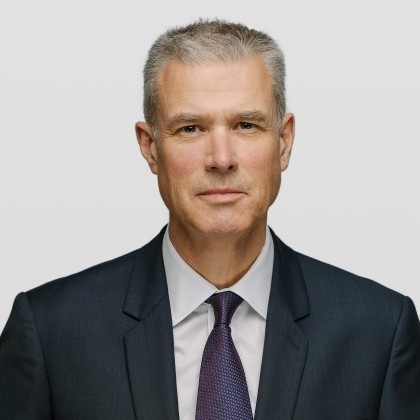


Ed Richards
Ed Richards is a co-founder of Flint Global Ltd. Flint works with companies and other organisationswho seek to navigate successful developments in the policy, political and regulatory arenas. The company works globally from six offices across Europe and the Asia Pacific region. Ed works across a broad range of sectors including digital/tech and other network industries, as well as on general policy, competition, and regulatory issues.
Before co-founding Flint, Ed spent more than eight years as the Chief Executive of Ofcom, the UK’s communications regulator. Earlier in his career Ed worked as an adviser to the UK Prime Minister in 10 Downing Street covering a wide range of domestic policy areas and helping to coordinate the introduction of significant legislation. Prior to this, he led the Corporate Strategy team at the BBC during the development of digital technology and services.
In addition to his position as Founding Partner at Flint, Ed is also Chair of Nesta, the social innovation charity and Chair of the Behavioural Insights Team (the Nudge Unit).



Edward Starling
Ed Starling is Head of the Disputes Practice at Wedlake Bell and a specialist in insolvency, restructuring and commercial litigation.
He advises a wide range of stakeholders, including creditors, insolvency practitioners, LPA receivers, trustees in bankruptcy, companies, directors, lenders, shareholders, LLP members and purchasers of distressed assets.
Ed has extensive experience acting in claims brought by or against insolvency officeholders for the benefit of recovering sums for creditors.
In addition, Ed handles significant civil fraud matters, including investment and Ponzi‑style schemes, as well as cases involving dishonesty, misrepresentation and cross‑border jurisdiction issues.
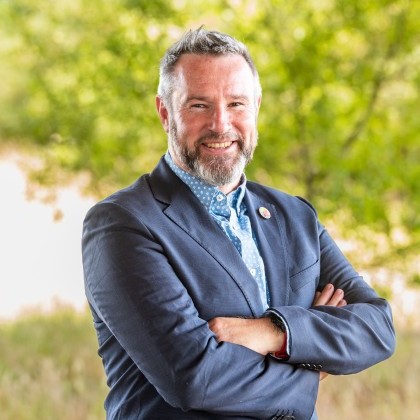


Eoin Murray
Eoin Murray is Chief Investment Officer at Rebalance Earth, where he pioneers nature finance by treating ecosystems as business-critical infrastructure. With over 25 years of investment leadership experience, including CIO roles at Federated Hermes and Old Mutual, Eoin has consistently been at the forefront of financial innovation, from quantitative strategies, private debt to sustainable investing. Currently pursuing a PhD in Finance at Bayes Business School, he also served as Managing Director of the SEED Biocomplexity Index at ETH Zurich's Crowther Lab, developing the world's most comprehensive biodiversity measurement tools. Beyond finance, Eoin is Chair of Exmoor Search and Rescue Team and recipient of the Queen's Platinum Jubilee and King's Coronation medals for his services to Mountain Rescue. At Rebalance Earth, he leads the mission to deploy £10 billion over the next decade, transforming degraded UK ecosystems into investible assets that deliver contracted returns top investors while building resilience against water risks, floods, and drought
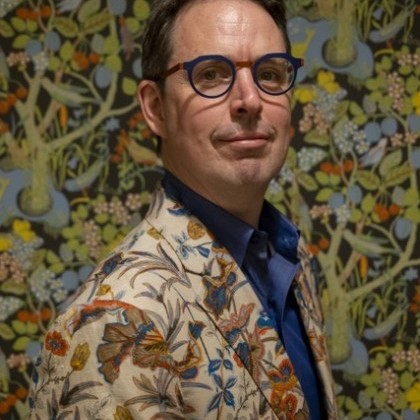


Felix Salmon
Felix Salmon is a senior writer on the Ideas and Culture desk at Bloomberg. He's also the host of the weekly Slate Money podcast, and author of "The Phoenix Economy: Work, Life, and Money in the New Not Normal." He earned an MA in philosophy and art history from the University of Glasgow and has worked for noted economist Nouriel Roubini and outlets from Reuters to Condé Nast. He has won every major business journalism prize, including the American Statistical Association’s Excellence in Statistical Reporting Award. He lives in New York City.



George Littlejohn
George Littlejohn qualified as a chartered accountant with PwC in London before becoming a journalist with The Economist, specialising in financial and economic matters. He is now Senior Adviser at the Chartered Institute for Securities & Investment (CISI), having conducted advisory work in financial centres across Europe, the Middle East and Asia over the past two decades. He is a graduate of the University of Edinburgh, and the author of a number of works on risk management in finance.
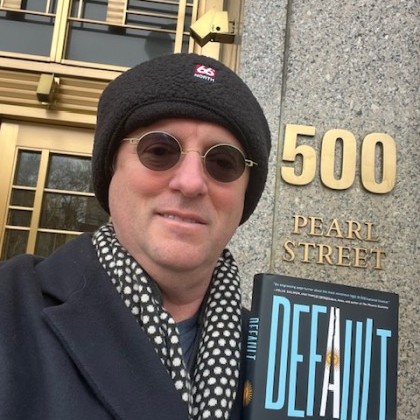


Gregory Makoff
Gregory Makoff was an investment banker for 21 years, specializing in liability management and debt restructuring. He has been a non-resident senior fellow writing about sovereign debt at the Centre for International Governance Innovation (CIGI) since 2015, was a senior policy advisor at the U.S. Treasury during 2015 and 2016, and was a senior fellow at the Mossavar-Rahmani Center for Business and Government at the Harvard Kennedy School from 2023 and 2025. He is the author the Fool Me Twice Substack newsletter and Default: The Landmark Court Battle over Argentina’s $100 Billion Debt Restructuring (Georgetown 2024), his first book. Gregory holds a Ph.D. in physics from the University of Chicago (1993) and B.Sc. degrees in physics and political science from the Massachusetts Institute of Technology (1986). Gregory is also a CFA® charter holder.
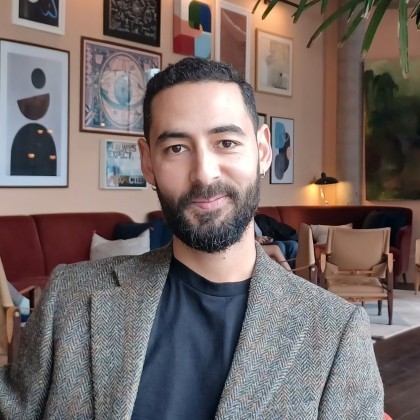


Ilias Alami
Ilias Alami is an Assistant Professor in the Political Economy of Development at the University of Cambridge, where he writes about state capitalism, geopolitics, the green transition, and global finance. He is also the Director of the PhD programme in Development Studies. Prior to joining Cambridge, he held research and teaching positions at Uppsala University, Maastricht University, and Manchester University, and visiting positions at the University of Sydney, Sciences Po Paris, the Getulio Vargas Foundation in Sao Paulo, and the University of Johannesburg. He is the author of Money Power and Financial Capital in Emerging Markets: Facing the Liquidity Tsunami (Routledge, 2019) and co-author of The Spectre of State Capitalism (Oxford University Press, 2024). Ilias is a fellow of the Transition Security Project, a research associate at the Second Cold War Observatory, and a member of Common Wealth's Green Planning Commission.
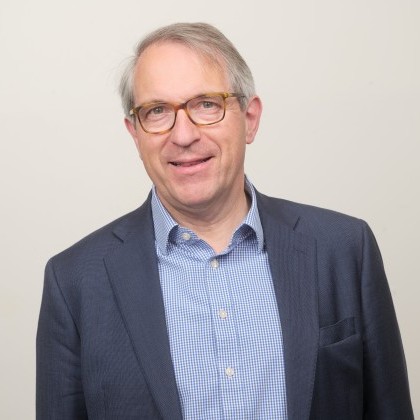


Ivan Sedgwick
Ivan Sedgwick has worked, largely in equities, at Morgan Stanley, Schroders, Lazards and Societe Generale, in London and New York. For the last few years he has acted as Investment Director for LGB & Co., as well as being a director of a community-owned broadband network, and serving on the council of the Royal Asiatic Society. He studied history at Cambridge and Birkbeck, University of London and has an MBA from the Bayes Business School. He lives in Lancashire.



Izabella Kaminska
Izabella Kaminska is the founder and editor of The Blind Spot, a new media venture that aims to shine a light on stories being missed by the wider journalistic pack. The site focuses on finance, market, and media news in both short and long form. It hopes to deliver a healthy mix of analysis and opinion-led commentary, supported by aggregation, news reporting and deep dives.
In February 2023, she also became Politico Europe’s senior finance editor, overseeing the growth of Politico’s financial coverage on a part-time basis, in a deal that secured a special licensing agreement for the distribution of Politico content on The Blind Spot. She continues to author her weekly newsletter at The Blind Spot.
Izabella is an alumnus of the Financial Times, where she spent 13 years in reporting roles, most recently as the editor of FT Alphaville, the Financial Times’s award-winning markets and finance blog. Izabella was also an FT columnist and opinion writer focused on tech, finance, and markets. She has also written as a freelancer for Bloomberg, Boat International, and Public News.
Izabella started her journalistic career in 2001 as a junior reporter for the English-language newspaper the Warsaw Business Journal. She later spent time in the former Soviet Union at the Caspian Business News, which took her to Azerbaijan and Georgia. In 2003 she reported as a freelancer from Kabul, Afghanistan, before joining BP as an Associate Editor of the company’s internal magazine Horizon in 2004.
After completing the 2005 Reuters graduate trainee program, Izabella joined Platts to focus on the reporting of European natural gas markets. She then went on to become a senior producer at CNBC in London, producing the channel’s flagship program Squawk Box.
With The Blind Spot Izabella is initiating a two-part plan to try to reconfigure how journalistic information is organized on the Internet.



Jesse Norman MP
Jesse Norman has been the Member of Parliament for Hereford and South Herefordshire since 2010, and serves as Shadow Leader of the House of Commons. Among his Ministerial roles he served as Paymaster General and Financial Secretary to the Treasury.
He is a Quondam Fellow of All Souls College, Oxford and has written numerous books including Adam Smith: What he Thought and Why it Matters (2018) and a novel about betrayal and revenge at the turn of the 17th century, The Winding Stair (2023), which he is presently adapting for the stage.



Jonathan Ford
Jonathan Ford is a freelance writer. He was an editor and columnist at the Financial Times, and held senior editorial positions at Prospect Magazine, Reuters and Breakingviews. He now presents a podcast on financial and business history called A Long Time in Finance and writes a substack, Business Adventures.
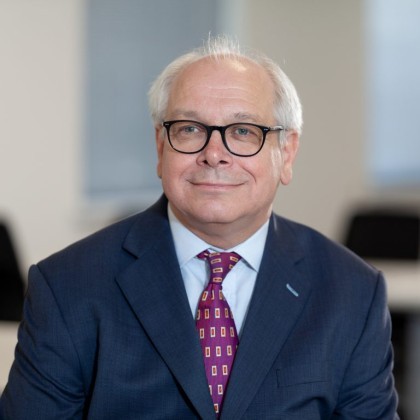


Keith Hiscock
Keith Hiscock is the Chief Executive of Hardman & Co Keith has published a number of papers on the issues facing companies and markets in today’s climate. His career in stockbroking started 43 years ago at James Capel, at the time, the top-ranked research house in London. He was a founding member of Schroder Securities and of Agency Partners, a leading research boutique, and was a member of the five-man securities board at Evolution. Keith has also advised companies, large and small, on their relationships with the capital markets
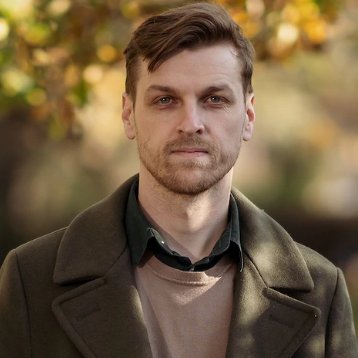


Lawrence Newport
Dr Lawrence Newport is a campaigner, and co-founder of Looking for Growth. He has led national campaigns for criminal justice reform and public safety, including the successful push to ban XL Bully dogs and tougher sentencing for prolific offenders. A former academic, he uses data and public pressure to force policy change. He is now focused on tackling Britain's decline, unlocking growth, and rebuilding the country's ability to get things done.
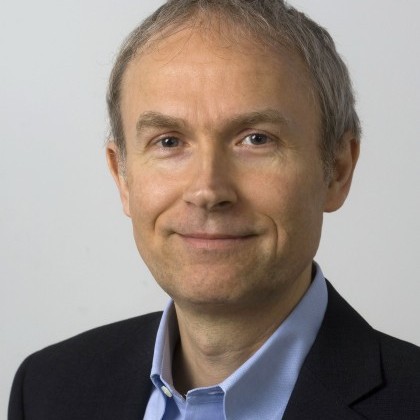


Luke Johnson
Luke Johnson is chairman and co-owner of Gail’s Bakeries, which has grown 15-fold since he first invested 15 years ago and makes profits in excess of £50m. Previously he was chairman of PizzaExpress PLC, Channel 4 Television, The Institute of Cancer Research and various other companies and charities. He wrote a weekly business column in The Sunday Times, The FT and The Sunday Telegraph for a combined total of 20 years. Early in his career he worked at a stockbroker as an investment analyst.
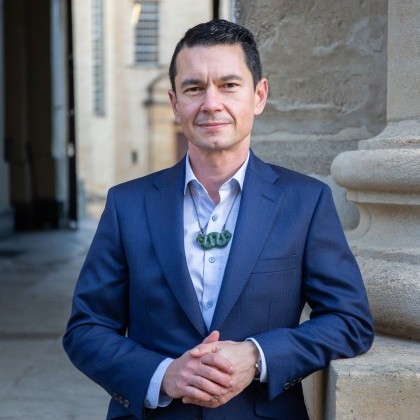


Lyndon Drake
The Rev’d. Dr. Lyndon Drake is a Research Fellow at the University of Oxford, following on from a DPhil in Theology from Oxford (2023) on economics and writing in the Hebrew Bible/Old Testament, and a PhD in Artificial Intelligence from York (2005). He is the operational lead for the Oxford Collaboration on Theology and Artificial Intelligence. Until 2024, he served as the Māori Anglican Archdeacon of Tāmaki Makaurau in Aotearoa/New Zealand. Lyndon also has degrees in science and commerce (Auckland) and two previous degrees in theology (Oxford), along with peer-reviewed publications in science and theology. Until 2010, Lyndon was a Vice President at Barclays Capital, trading interest-rate products. Since then, he has served in church ministry, as well as teaching theology and holding other leadership roles, including as chair of Te Whare Ruruhau o Meri Trust Board (a charity working to reduce family harm and sexual violence).
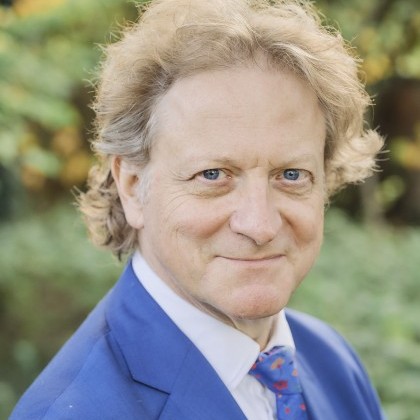


Mark Oliver
Mark Oliver is Chairman and Founder of Oliver & Ohlbaum Associates the leading independent strategic adviser to the media, sports and entertainment sectors, which he set up in 1995.
Prior to that he was the BBC’s first Head of Strategy for six years. He began his career as an anti-trust and regulatory economist, first with NERA Inc and then with PWC. Mark writes widely on strategic, commercial, investment and policy issues concerning the media and sport industries and has advised on many of the major events affecting the sector. Clients have included the BBC, the Premier League, UEFA, CVC, KKR, Arctos, Redbird,Manchester United, Liverpool, ITV, Channel 4, WBD, Sky, Liberty Global, BT, Bein Sports.
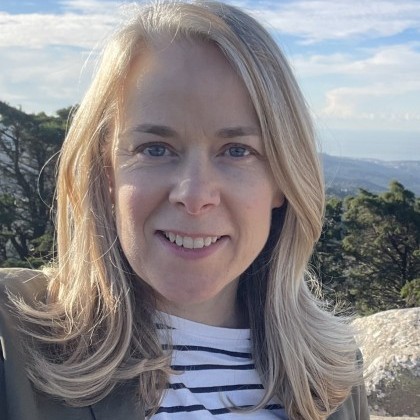


Mary Duffy
Mary is a trustee of Didasko and chairs the Library of Mistakes steering committee. She is co-founder and managing director of Juniper Trust, working with low-income students
and graduates, and she is on the board of the Carnegie Trust for the Universities of Scotland and the Personal Assets Foundation. Mary was previously the national head of BBC Children in Need in Scotland. She has a DPhil from the University of Oxford (Nuffield College).
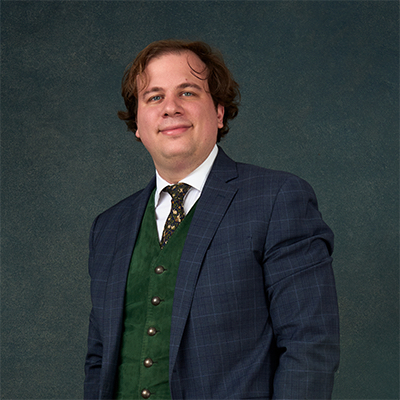


Maximilian Hess
Maximilian Hess founded the political risk consultancy Enmetena Advisory. He is the author of two books with Hurst, Tbilisi: Crossroads of the Caucasus; and Economic War: Ukraine and the Global Conflict Between Russia and the West, which was awarded the Fletcher US–Russia Relations Book Prize. His writing has appeared in Al Jazeera, The New Statesman, the Financial Times and others. He lives in London with his beloved Airedale terrier, Koba.
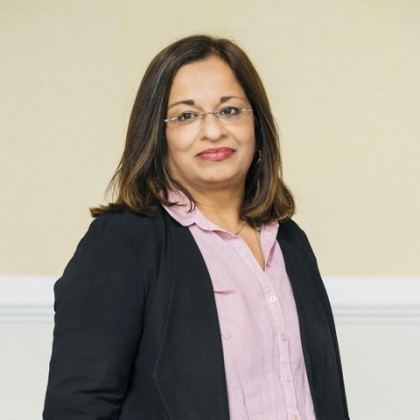


Mona Siddiqui
Mona Siddiqui, OBE is Professor of Religion and Society at Kings College, London. She is a regular commentator in the media, known especially for her appearances on BBC Radio 4 and BBC Radio Scotland’s Thought for the Day as well as BBC Radio 4’s The Moral Maze. In 2012, she appeared as a guest on Radio 4’s Desert Island Discs. She has published widely in the area of Christian -Muslim studies and Islamic law and ethics. She is an elected Fellow of the American Academy of Arts and Sciences, The Royal Society of Edinburgh and an advisor to the Rajaratnam School of International Studies, Nanyang Technological University in Singapore.
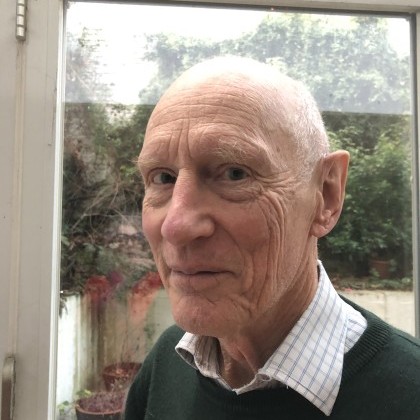


Neil Collins
City editor of the Daily Telegraph for 19 years, Neil has spent nearly all his working life in financial journalism, culminating in a weekly column for the Financial Times and a monthly column for The Oldie. He lives in London and is an enthusiastic, if mediocre, fly-fisherman. In addition to A Long Time In Finance podcast with Jonathan Ford, he writes a monthly column for The Oldie magazin



Nick Butler
Nick Butler is an energy economist and Visiting Professor in the Policy Institute at Kings College London. He was Group Vice President for Strategy and Policy at BP from 2002 to 2007 and subsequent senior policy adviser to Prime Minister Gordon Brown.
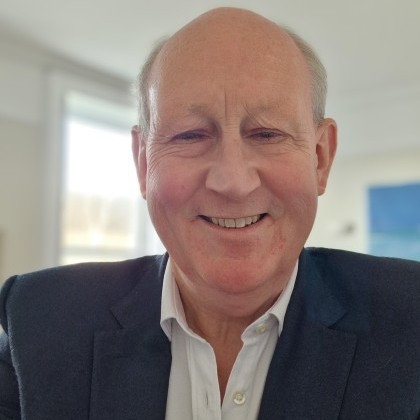


Norman Cumming
Norman Cumming read Economics at Cambridge. After spells at HM Treasury and Shell, he spent most of his career in institutional investment management. He was global Head of Fixed Income for UBS Asset Management. He was a director of MetLife Assurance Ltd, and a trustee and head of the investment committee at UnLtd, the Foundation for Social Entrepreneurs.
In retirement he is a member of the investment committees of the Cambridge University Pension Scheme; and of Clare College (where he was architect of the College's scheme to borrow long term on an inflation-linked basis, so as to invest in global equities).
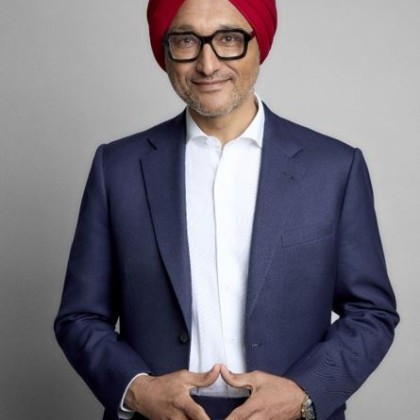


Parminder Kohli
Parminder is the Chair of Shell UK Ltd and Executive Vice President of Sustainability and Carbon for Shell Group. He also serves as a Trustee on the Board of the Shell Foundation.
With over 24 years at Shell, Parminder has held a range of senior leadership roles across the company’s Downstream businesses, including Chemicals, Mobility, and Lubricants. His career has been marked by transformative leadership across key commercial areas - corporate strategy, marketing, business development, operations, and P&L ownership - delivering sustainable commercial impact.
Parminder has a track record of creating high-performing businesses by building strong, cohesive teams, attracting diverse talents, and fostering a culture of excellence. A deep commitment to building diverse and inclusive teams has consistently guided his leadership approach. He was appointed as a Commissioner for the UK Government’s Social Mobility Commission in 2022.
Parminder completed the Advanced Management Programme at Harvard Business School and holds an MBA from IMD Business School. A physical and mental fitness enthusiast, he enjoys distance running, yoga, and meditation.
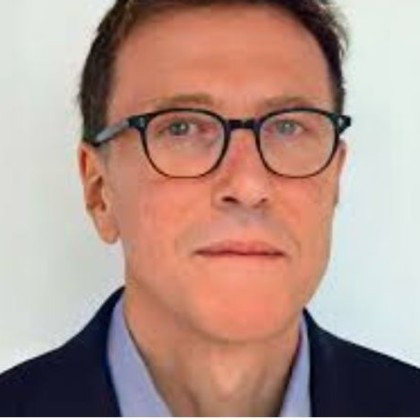


Paul Greatbatch
Paul Greatbatch was a Partner & Portfolio Manager at Genesis Investment Management from 1994-2013, one the oldest specialist managers operating in Emerging Markets on behalf of large institutional clients
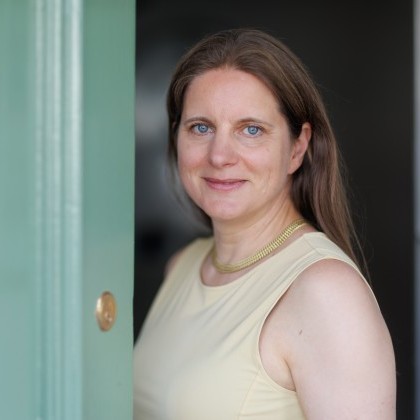


Professor Anja Shortland
Anja Shortland is a Professor in Political Economy at King’s College London. She studied Engineering Science at Oxford and for her MSc in Political Economy and PhD in International Relations at LSE. Anja specialises in institutional economics and the economics of crime. She is fascinated by private ordering in the world’s trickiest markets: hostages, hijacked ships, stolen art, ransomware and protection for criminalised minorities. Her research focuses on trades between legal and illegal enterprises and mafia and insurance governance in criminal markets.
Anja latest book: We Know Can Pay A Million: Inside the Dark Economy of Hacking and Ransomware will be released by Profile Books in April 2026.
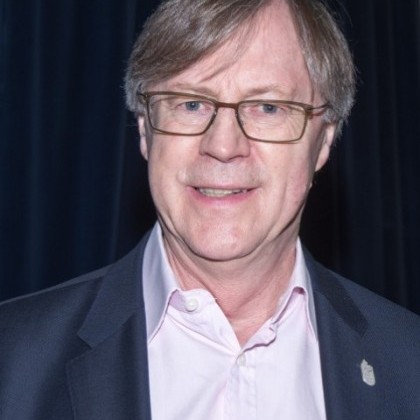


Professor Paul Cartledge
A.G. Leventis Senior Research Fellow of Clare College Cambridge; emeritus A.G. Leventis Professor of Greek Culture in the University of Cambridge. Author, co-author, editor, co-editor of over 30 books, most recently the single-authored Thebes: the Forgotten City of Ancient Greece and Democracy: A Life. I hold three honorary degrees, am a Commander of the Order of Honour (Greece), and an Honorary Citizen of Sparti (modern Sparta).



Professor Rachel Jenkins
Rachel Jenkins OBE is a psychiatrist, epidemiologist and mental health policy maker. She is Emeritus Professor of Epidemiology and International Mental Health Policy at Kings College London and formerly Director of the WHO Collaborating Centre (1997-2012). She trained in Medicine at Girton College, Cambridge, and then in Psychiatry at the Maudsley Hospital and epidemiological research at the Institute of Psychiatry before becoming Consultant Psychiatrist and Senior Lecturer, first at the Maudsley Hospital and Institute of Psychiatry and then at St Bartholomew’s Hospital . She was then recruited into the Senior Civil Service as Principal Medial Officer for mental health policy 1987-1996. She has provided policy support, research and training in the UK, Africa, the Middle East and Asia .
She initiated the national mental health survey programme in the UK in 1992, which has provided much useful information both about the prevalence, causes and consequences of mental disorders, including the relationship with income and debt, and about the dimensions of happiness and wellbeing. She led the mental health component of the Chief Scientist’s Foresight report of Mental Capital and Wellbeing 2008.
She returned to live in her native Herefordshire in 2011, and is active in local biodiversity projects . She produced the exhibition about the River Wye, now on display in Hay Church.



Professor the Baroness Alison Wolf DBE
Professor the Baroness Alison Wolf DBE is the Sir Roy Griffiths Professor of Public Sector Management at King’s College London. She sits as a cross-bench peer (Baroness Wolf of Dulwich) in the UK House of Lords. She specialises in the relationship between education and the labour market. She was the founding Chair of Governors of King’s College London Mathematics School, and remains a governor and vice-chair, and she is a trustee of the University Maths Schools Network.
Alison Wolf served in the No 10 Policy Unit, as a part-time expert adviser on skills and workforce to the UK Prime Minister, from February 2020 to February 2023. She was a panel member for the ‘Augar Review’: the independent Review of Post-18 Education and Funding chaired by Sir Philip Augar, which reported in 2019. In March 2011 she completed the Wolf Report which led to major reforms in vocational education for 14-18 year olds, and she was also a member of the Sainsbury Review which led to the creation of T-levels. Publications include The XX Factor and Does Education Matter?
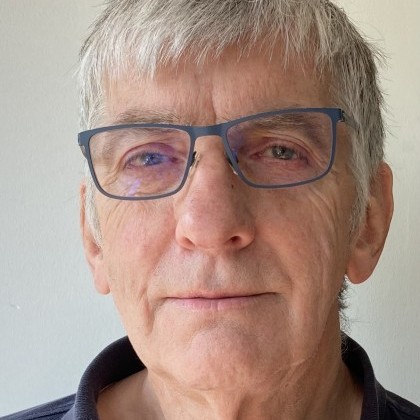


Ray Perman
Ray Perman was a financial journalist for over 30 years on newspapers including the Financial Times and The Times. He is the author of four books, including The Rise & Fall of the City of Money, a financial history of Edinburgh, and HUBRIS, an account of the collapse of HBOS in 2009. His latest work is a biography of the Enlightenment geologist and businessman James Hutton. He is a fellow of the Royal Society of Edinburgh and chair of court at the University of St Andrews.
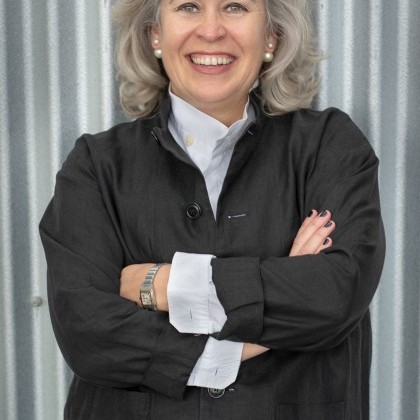


Rhian Anwen Hamill
Rhian-Anwen Hamill is Director of Family Enterprise at the Institute of Entrepreneurship and Private Capital at London Business School and Managing Partner of RAH Partners, a family business advisory firm. She works with founders and privately owned businesses on matters of governance, succession planning, and next-generation preparation. Her experience comes from business, financial services, coaching, psychology, philanthropy, and the arts.
She writes on a wide range of issues affecting families, including coaching for succession planning, family office recruitment, and women in family enterprise. Her work has been published in Family Capital, Globe Law and Business, and STEP’s Family Office Journals. She is a respected speaker and facilitator at family business events.
Rhian has spent nearly 40 years immersed in financial and professional services, starting her career at Goldman Sachs, and since 2005, running her own firm, RAH Partners. She has also operated at board/C-suite level in the world of arts and philanthropy.
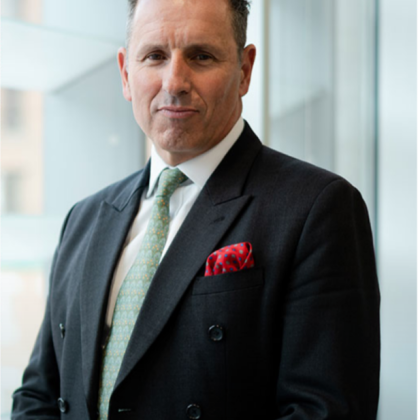


Robert Hanna
Robert is co-founder of Ashdown Litigation Partners, an independent facilitator and co-ordinator of protected litigation financing opportunities. Prior to that Robert co-founded Augusta the UK’s largest litigation funders by case volume. He was responsible for both claims and investment generation. Robert spent over 20 years in the hedge fund industry, initially as Head of Sales for the International Equity Finance department of Merrill Lynch International based in London, then as Global Head of Marketing and Sales for the Equity Finance Department of Merrill Lynch, Pierce, Fenner & Smith in New York. He subsequently co-founded Mako Investment Managers, a multi-hedge fund asset manager, acting as Chief Investment Officer.
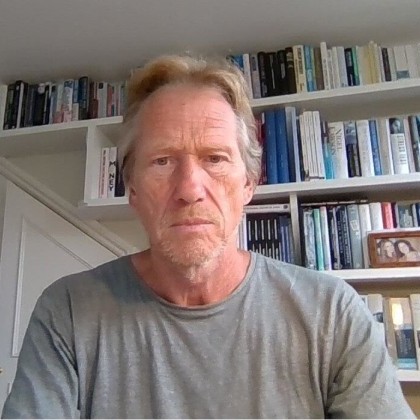


Russell Jones
Russell Jones has been a professional macroeconomist for some forty years. Over the course of his long career, he has at different times been domiciled in London, Tokyo, Abu Dhabi, and Sydney, and applied his skills to all the major asset classes. He has worked for a number of major financial institutions, been a partner at one of Britain's foremost economic consultancies, and provided advice not just to leading asset managers, but also to several governments and central banks. He has also published a number of books.



Sir Martin Donnelly
Sir Martin Donnelly is a former Permanent Secretary with expertise in business, trade and global economic issues, and four decades of experience shaping policy across Government and the private sector, in the UK and globally. He has worked in Brussels and Paris as well as London, and has written widely on international trade and economic issues, gender diversity and leadership. Martin is a part-time adviser to the Foreign Secretary on the UK's economic diplomacy, and senior independent director at the National Audit Office.' He lives in Bwlch, Powys.



Theodora Zemek
Theodora Zemek has had a 40 year career in the City, largely in fixed income investment. She has managed portfolios for central banks, insurance and pensions companies and retail investors. She was formerly a Non Exec for BlackRock Fund Managers
Prior to her retirement, she was Global Head of Fixed Income for Axa Investment Managers, responsible for Euros 385 billion in assets.. She established the fixed income divisions of M and G Investment Management (1992) and New Star Asset Management (2001), having launched the first UK Corporate Bond unit trust and the first UK High Yield Corporate Bond Fund.
Theo received her PhD in History from Cambridge in 1985, with a thesis on the the influence of the Scottish Enlightenment (Smith and Ferguson) in France.



Tom Elliott
Tom Elliott is an investment consultant, helping multi-asset management companies with their asset allocation decisions. Tom previously worked for the Mattioli Woods Group as a Senior Strategist, and at JP Morgan Asset Management in London for 18 years, leaving at Executive Director level. Before that he worked for four years as a company analyst, for stockbrokers Greig Middleton and Co.
Tom is also a visiting lecturer at King’s College (London University), in the department of political economy. He has a Master’s degree in Economic History from the London School of Economics, and a degree in History from the University of Sussex.
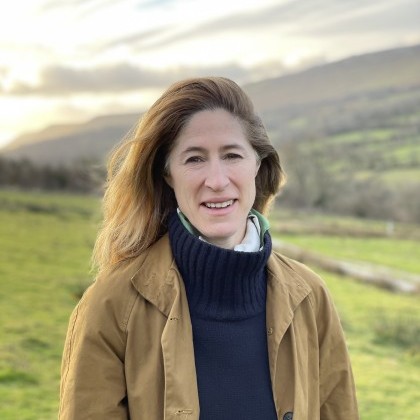


Victoria Heffer
Victoria Heffer is Chief Executive Officer of Radnorshire Wildlife Trust and Chair of Beaver Trust. Prior to joining the world of nature restoration, she worked in the investment management industry for 25 years. Her last role was Head of Institutional for Artemis Investment Management where she managed the firm's approach to institutions. Amongst other things she was involved in integrating ESG into the investment process, communicating the stewardship demands of institutional investors and the launch of the firm's first impact equity fund. She has a keen interest in ensuring natural capital investment delivers positive outcomes for nature.
What They Are Saying
A Weekend that was definitely not a Mistake! I greatly enjoyed the wonderfully warm atmosphere that blurred the boundaries between the audience and the speakers. A wonderful event and brilliant for everyone to share ideas and expertise in this relaxed atmosphere.

A Weekend that was definitely not a Mistake! I greatly enjoyed the wonderfully warm atmosphere that blurred the boundaries between the audience and the speakers. A wonderful event and brilliant for everyone to share ideas and expertise in this relaxed atmosphere.


We are partnering again with The Library of Mistakes, a free-to-use library dedicated to the study of financial history, with an outreach and education programme that includes courses, events, and podcasts.


We are delighted to be working with CISI (Chartered Institute for Securities and Investment) again.
In addition to its exceptional intellectual content, the weekend will provide many valuable professional insights, Participation in the Weekend of Mistakes 2026 has been accredited with up to 5 hours of CISI-endorsed CPD (Continuing Professional Development) per day, to a maximum of 10 hours for the weekend.


Join us for the Weekend of Mistakes at a unique location. Hay Castle is a stunning architectural gem, blending medieval heritage with contemporary design. It stands as a beacon of art, culture, history, and gastronomy at the heart of the Town of Books.


We’re delighted to have the School of Political Economy (DPE), King’s College London, as our Academic Partner again.
Founded in 2010, King’s DPE is the only dedicated Department of Political Economy in the United Kingdom. In a world characterised by financial uncertainty, ecological insecurity, and value conflict, the links between political and economic processes are ever more apparent, and the need for a multifaceted appreciation of how they operate has never been greater.
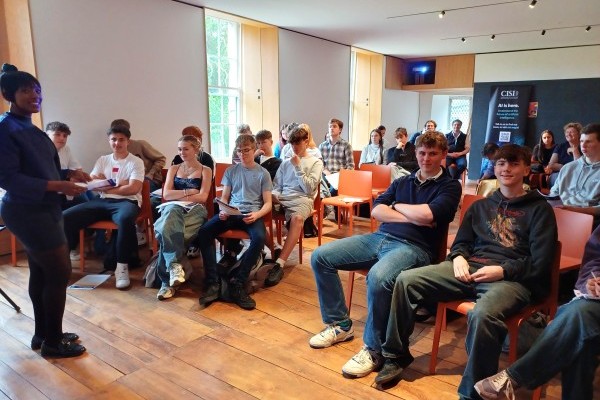

We are delighted to be partnering again with FTFLIC - The Financial Times Financial Literacy and Inclusion Campaign. Each year, on the Friday of the Weekend of Mistakes, we hold a local schools day in collaboration with FTFLIC.


